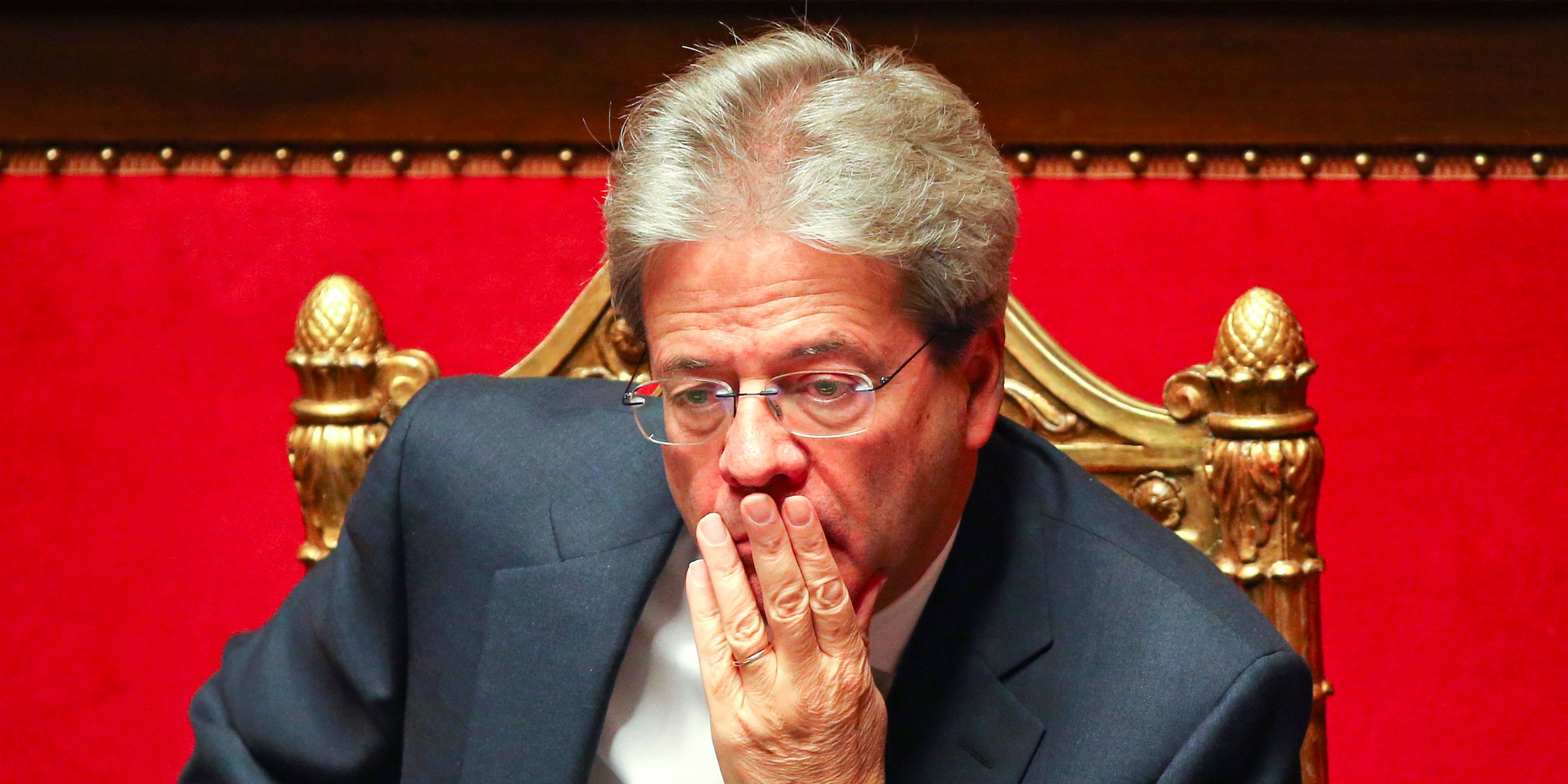
- Italy will hold a general election on March 4, an event that some have identified as one of the biggest political risks for markets in 2018.
- Karen Ward, a strategist at JPMorgan’s $1.7 trillion asset management arm disagrees, saying her and colleagues are not overly concerned by the election.
- In recent history, Italy has been politically unstable, so further instability — so long as it does not threaten the country’s membership of the eurozone — is not a huge issue, Ward argued.
LONDON — Italy’s upcoming general election, which many have identified as being among the biggest political risks facing global markets in 2018, could end up being something of a damp squib, a top strategist at $1.7 trillion JPMorgan Asset Management told Business Insider.
Speaking in an interview earlier this month, Karen Ward, JPMAM’s chief market strategist for the UK and Europe, said that while she is not “complacent” about possible risks in Italy, her and colleagues are not hugely concerned about the election ending in a market unfriendly outcome.
There is one reason for that, Ward says. The fact that in recent history, Italy has been politically unstable, so further instability — so long as it does not threaten the country’s membership of the eurozone — is not a huge issue.
“We are not complacent, but we do believe that it is most likely that the outcome certainly isn’t massively in favour of any of the populist parties, particularly Five Star [the populist movement headed by comedian Beppe Grillo],” she told BI.
“The most likely outcome still is one where it is hard to form a coalition which is strong and stable, but it is not so clear to us that that’s going to particularly trouble the markets given that that kind of government is not really something you associate with Italy anyway.”
Italy’s governmental system is famously fragile, with the country seeing more than 60 different prime ministers in the years since World War Two.
For much of 2016, that fragile political situation as well as the country’s weak economy was a major concern for the eurozone and therefore the global economy.
There were genuine fears that the world’s oldest bank, Monte dei Paschi di Siena, could collapse, bringing down the entire Italian banking system, and possibily forcing Italy out of the eurozone. That in turn could have led to the downfall of the whole single currency.
Some also feared that the failure of then Prime Minister Matteo Renzi to win a referendum on constitutional reforms — on which he staked his career — could bring political chaos to the country and lead to a eurosceptic government which held a referendum on Italy’s membership of the euro, once again threatening the stability of the euro project.
Such concerns were ultimately overblown. A rescue package that protected Monte de Paschi was created, and Renzi’s loss in the December 2016 referendum turned out to be much less of a big deal than expected, after a technocratic government under former foreign minister Paolo Gentiloni stepped in to fill the void left by Renzi’s resignation.
Italy retreated from the spotlight, with attention turning to the rapidly accelerating economic recovery that saw the eurozone boom in 2017.
Now however, Italy is back as a major concern for both politics and market watchers alike, as the country heads to the polls for a general election, scheduled for March 4.
From a market standpoint, the main concern is that eurosceptic parties, particularly the Five Star Movement, could poll strongly, gaining enough seats in the Italian parliament to hold a crucial role in the country’s next government, once again threatening eurozone stability.

Ward, however, doesn’t buy this argument, saying that Italy’s current economic performance — which is stronger than it has been in many years — suggests that parties like Five Star and the Lega Nord are unlikely to cause as big an upset as some expect.
“When people get to the ballot, if the economy has been strong in the last few months, they sort of decide in the end not to rock the boat, and simply stay with those that are seen to delivering this recovery,” Ward said.
“If you look at the Italian data in the last six months, they’ve been spectacular. The PMIs are suggesting the Italian economy is really starting to catch up, and that the European recovery is picking them up along with it.”
The best scenario would obviously be a strong, stable, reform minded government for investing in Italy, and Italy itself,” Ward went on.
“But in terms of an outcome that seems to be particularly troubling for broader Europe, or broader markets, then we are less concerned.”













